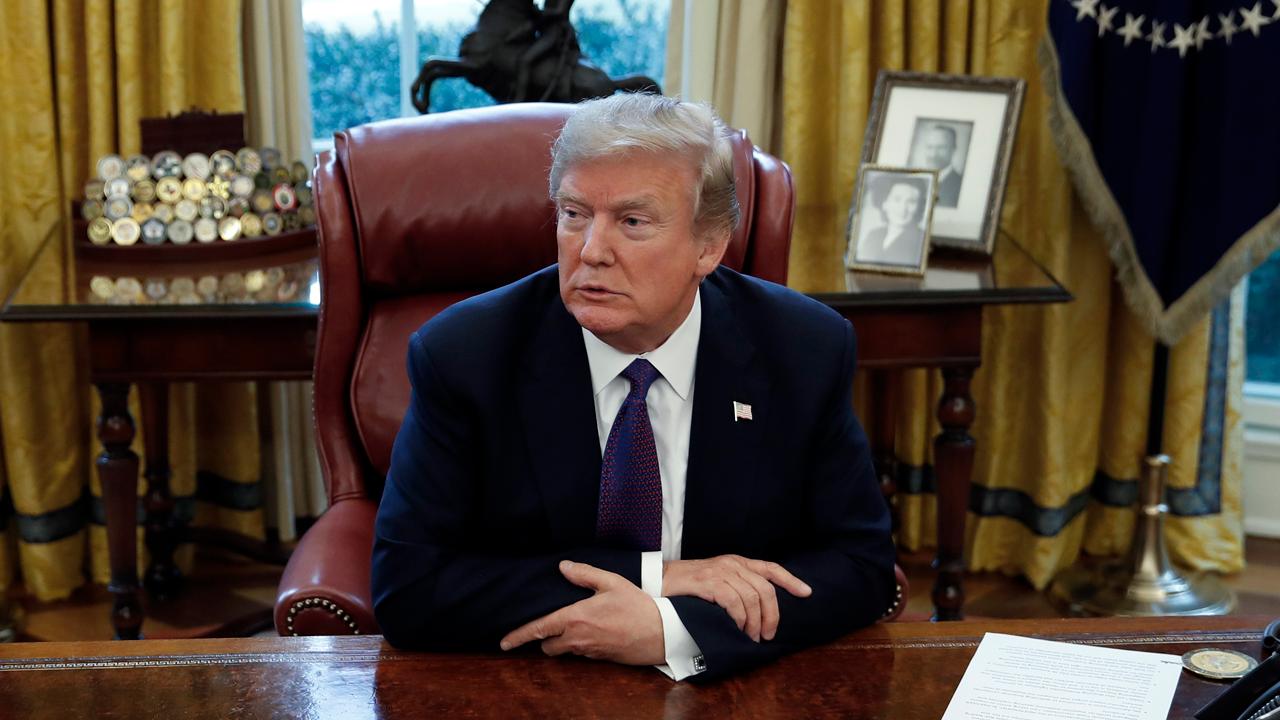Economist hails Trump tariff as GOP, business leaders cry foul
President Trump's planned tariffs on steel and aluminum imports is a "measured response" that will not lead to a trade war, the director of the White House National Trade Council said Friday on "Mornings with Maria."
Peter Navarro, an economist who is also assistant to the president and director of trade and industrial policy, said claims that the American steel and aluminum industries don't need protection from tariffs are wrong.
"The whole idea that we don't need the aluminum industry and the steel industry is just silly," he said, adding that the announced tariffs are a "measured response" that is "balanced" and low-risk. "I don't believe any country in the world is going to retailiate. They know they are cheating us."
The Dow Jones Industrial Average plunged more than 400 points in trading Thursday on a concern that a 25% tariff on steel imports and a 10% duty on aluminum would trigger a trade war. At the same time, steel stocks, including AK Steel and U.S. Steel, each saw shares rise by several percentage points.
Trump’s proposed changes were met with stiff opposition from Sen. Orrin Hatch (R-Utah), the chairman of the U.S. Senate’s Finance Committee, and several other prominent GOP figures. At present, there is no timetable for when the tariffs would be implemented.
“Tariffs on steel and aluminum are a tax hike the American people don’t need and can’t afford,” Hatch said in a statement. “I encourage the president to carefully consider all of the implications of raising the cost of steel and aluminum on American manufacturers and consumers.”
Trump argues that tariffs will protect U.S. companies and allow for the creation of new manufacturing plants. The president made the announcement after meeting with representatives from the steel industry. He said the tariffs would provide protection for U.S. producers “for a long time.”
The announcement comes just weeks after the U.S. Commerce Department indicated that tariffs against foreign producers were necessary to safeguard the country’s national security interests.
But Business Roundtable, a forum for conservative CEOs, said the tariffs would hurt the U.S. economy and American companies, workers and consumers and lead to foreign retaliation against U.S. exporters.
“Using ‘national security’ tools to implement tariffs could embolden other countries to impose ‘national security’ tariffs on U.S. exporters or otherwise restrict U.S. goods and services sold to their markets,” Joshua Bolten, the organization’s president and CEO, said in a statement.
The announcement triggered declines in shares of top U.S. automakers, as well as Caterpiller, which manufactures heavy equipment, and Boeing, the country’s largest exporter. The proposal would mark the first time since 2002 that the U.S. has imposed steel tariffs.




















